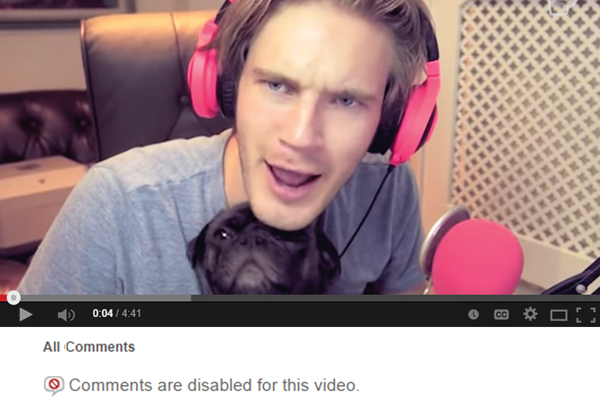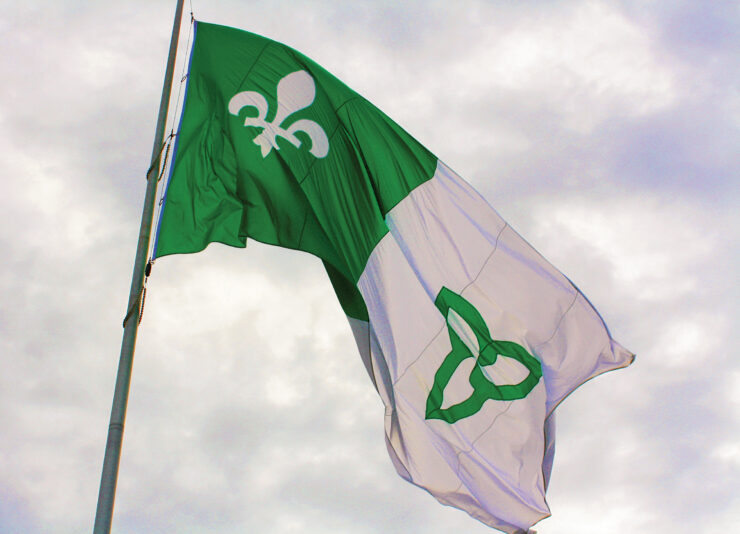Why we need a discussion about freedom of expression on the web
Photo courtesy of Youtube
Famous YouTube user Felix Kjellberg, better known to the world as Pewdiepie, sent the site’s most miserable trolls reeling on Aug. 29 when he announced that he will be disabling the comments section of his channel indefinitely.
The Internet star said the sad state of the comments section—long overrun with relentless spam and incendiary provocateurs—has made it impossible to communicate with his fans on any meaningful level.
Even though his massive fan base of 30 million subscribers has remained mostly supportive of the decision, Pewdiepie still faces harsh criticism online. Some have said the video game commentator simply can’t handle negative feedback, while others have even gone so far as to claim he’s suppressing freedom of expression.
The latter of these criticisms is a particular point of contention, since assholes everywhere have used the declaration of “free speech” as an excuse to continue their abysmal behavior for far too long.
Let’s get one thing straight: freedom of speech does give you the right to say almost whatever you want, but that doesn’t mean you are immune from consequence or accountability. Unfortunately, a lot of people online don’t see it that way and often cast themselves as “champions of free speech” by continuing to broadcast anonymous slander and hatred.
While some might consider this attitude harmless, recent events have reinforced the idea that Internet trolling is more than just a mean-spirited pastime. Instead, it has transcended into the realm of harassment that causes real-world pain and anxiety.
For example, video game developer Zoe Quinn was subject to a barrage of death and rape threats after her ex-boyfriend published a blog that listed the different video game journalists she allegedly slept with. A similar fate befell feminist blogger Anita Sarkeesian, who fled her home when similar threats popped up after she posted a new entry in her series that studies the portrayal of women in video games. This kind of attitude even transcends the realm of video game culture, a fact that was highlighted in August when Zelda Williams, daughter of Robin Williams, was forced to delete her Twitter account after being bullied following her father’s death.
There is no easy fix to this problem, since it’s extraordinarily difficult to monetize a populist tool like the Internet without infringing on legitimate claims to freedom of expression. This is especially true since the subject of Internet anonymity is such a divisive issue, even among moderate commentators. YouTube has recently felt the backlash with regards to this debate, since their efforts to encourage people to use their real names when commenting online through Google+ went up in flames in July.
However, now that Pewdiepie—the most popular face of the website—has taken such a public stand against vile trolling, perhaps YouTube will eventually revise its methods and figure out a way to weed out the trolls without suppressing constructive dialogue.
It’s definitely a tall order, but given the reputation that’s associated with their comments section, YouTube doesn’t really have a lot to lose.




